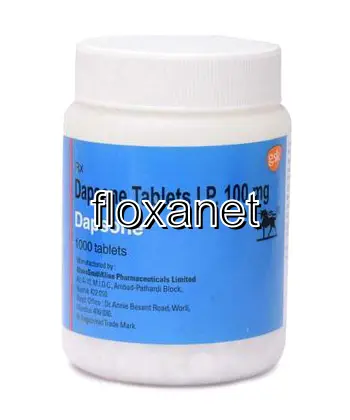Shop Dapsone (Diaminodiphenyl Sulfone) Online in Canada
| Package | Dosage | Price | Price per Dose | |
|---|---|---|---|---|
| Dosage: 100mg | ||||
| 1000 pill | 100mg | CAD121.20 | CAD0.11 | |

Dapsone Description
Overview of Dapsone
Dapsone is a medication commonly used in the treatment of various skin conditions and certain infectious diseases. It belongs to the class of drugs known as sulfone antibiotics. Its primary function is as an anti-inflammatory and antimicrobial agent. Dapsone has been in medical use for many decades and continues to be valued for its effectiveness in managing specific health issues.
Medical Uses
One of the main uses of Dapsone is in the treatment of leprosy. It is often prescribed as part of multidrug therapy to combat the infection caused by Mycobacterium leprae. Besides its role in treating leprosy, Dapsone is also used for dermatitis herpetiformis, a chronic blistering skin condition linked to gluten sensitivity. It can help reduce symptoms like itching, blisters, and skin lesions in affected patients. Additionally, Dapsone is sometimes utilized in the management of other skin diseases, including certain types of vasculitis and pneumocystis pneumonia prophylaxis in immunocompromised individuals.
How It Works
The medication works by inhibiting the synthesis of folic acid derivatives in bacteria and some parasites. This interruption impairs their growth and replication. In the case of skin conditions like dermatitis herpetiformis, Dapsone’s anti-inflammatory properties help alleviate immune-mediated skin reactions. Its dual antimicrobial and anti-inflammatory effects make it a versatile drug for various clinical scenarios.
Dosage and Administration
The dosage of Dapsone depends on the condition being treated, the patient’s age, weight, and overall health. It is typically administered orally in the form of tablets. For leprosy, the regimen may involve daily doses divided into multiple smaller doses, often combined with other medications. Patients are advised to follow their healthcare provider's instructions closely to minimize side effects and ensure effective treatment. Regular monitoring during therapy is essential to assess efficacy and detect any adverse effects early.
Possible Side Effects
Although Dapsone is generally effective, it can cause side effects in some individuals. Common adverse reactions include nausea, headache, and mild skin rashes. More serious, but less common, side effects involve hemolytic anemia, which is a breakdown of red blood cells, and methemoglobinemia, a condition impairing oxygen delivery in the blood. Some patients may also experience allergic reactions, which require immediate medical attention. Routine blood tests are often recommended to monitor blood cell counts during treatment.
Precautions and Contraindications
Dapsone should be used with caution in people with certain conditions. Patients with glucose-6-phosphate dehydrogenase (G6PD) deficiency are at higher risk of developing hemolytic anemia and should be evaluated before starting therapy. It is contraindicated in individuals with known hypersensitivity to sulfone drugs. Pregnant or breastfeeding women should consult their healthcare provider, as the safety of Dapsone in these populations is not fully established. Patients should inform their doctor of all medications they take to avoid potential drug interactions.
Conclusion
Overall, Dapsone remains a valuable medication for specific dermatological and infectious conditions. Its effectiveness in controlling diseases like leprosy and dermatitis herpetiformis has been well documented. However, due to its possible side effects, careful monitoring and consultation with a healthcare professional are crucial during treatment. When used appropriately, Dapsone can significantly improve quality of life for many patients dealing with complex medical conditions.